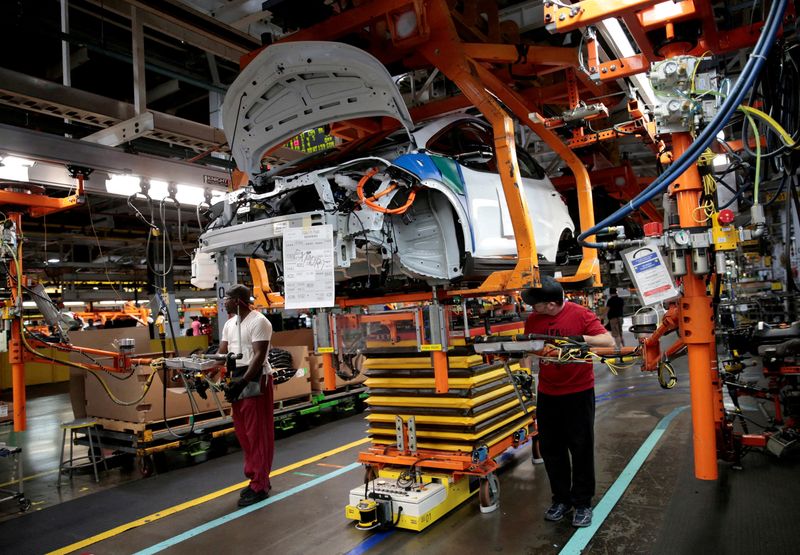By David Shepardson and David Lawder
WASHINGTON (Reuters) -The Biden administration on Friday issued-long awaited guidance that will limit Chinese content in batteries eligible for electric vehicle tax credits starting next year.
In a win for automakers, the U.S. Treasury will temporarily exempt some trace critical minerals from new strict rules barring materials from China and other countries deemed a "Foreign Entity of Concern." (FEOC)
The new rules, required under an August 2022 law, are designed to wean the U.S. electric vehicle battery chain away from China and are being closely watched by automakers as they make investment decisions on producing batteries for their transition to electric vehicles.
The FEOC rules come into effect in 2024 for completed batteries and 2025 for critical minerals used to produce them.
The Alliance for Automotive Innovation, a group representing nearly all major automakers, said the decision to exempt trace materials for two years "was significant and well-advised" and without it could have made nearly all vehicles ineligible.
Treasury said the few materials being exempted each account for less than 2% of the value of battery critical minerals.
General Motors (NYSE:GM) said on Friday it believes it is "well positioned to maintain the consumer purchase incentive for many of our EVs in 2024 and beyond."
Ford Motor (NYSE:F) said in October it was awaiting the guidance to determine if its licensing agreement with Chinese battery maker CATL, as part of the automaker's planned Michigan battery plant, would run afoul of the rules. Biden administration officials would not comment on whether that arrangement is permissible under the rules. Ford declined to comment.
Republican Senator Marco Rubio said the guidance appears to allow the Ford CATL agreement to qualify. He criticized the decision, arguing the administration was putting "EV special interest groups ahead of America's interests."
The Energy Department said a company would be deemed a FEOC if owned or controlled by a named foreign government. Companies will also be ineligible if an entity of concern holds 25% of that entity’s board seats, voting rights, or equity.
Those countries include North Korea, China, Russia and Iran.
The automaker group said "it appears that companies operating in China are considered FEOC. Chinese entities with specific ownership or governance structures might be permitted in certain circumstances."
The rules are expected to further reduce the number of electric vehicles eligible for EV tax credits. The law immediately made any vehicle ineligible if not assembled in North America. Earlier this year, new battery and mineral sourcing requirements took effect with price and buyer income eligibility caps from Jan. 1.

Senator Energy Committee chair Joe Manchin blasted Treasury for allowing some trace critical minerals from China to qualify and vowed to take every opportunity "to reverse this unlawful, shameful proposed rule and protect our energy security."
Treasury said to allow compliant vehicles to qualify until the rules are finalized, it will have an expedited compliance method for automakers with clean supply chains.